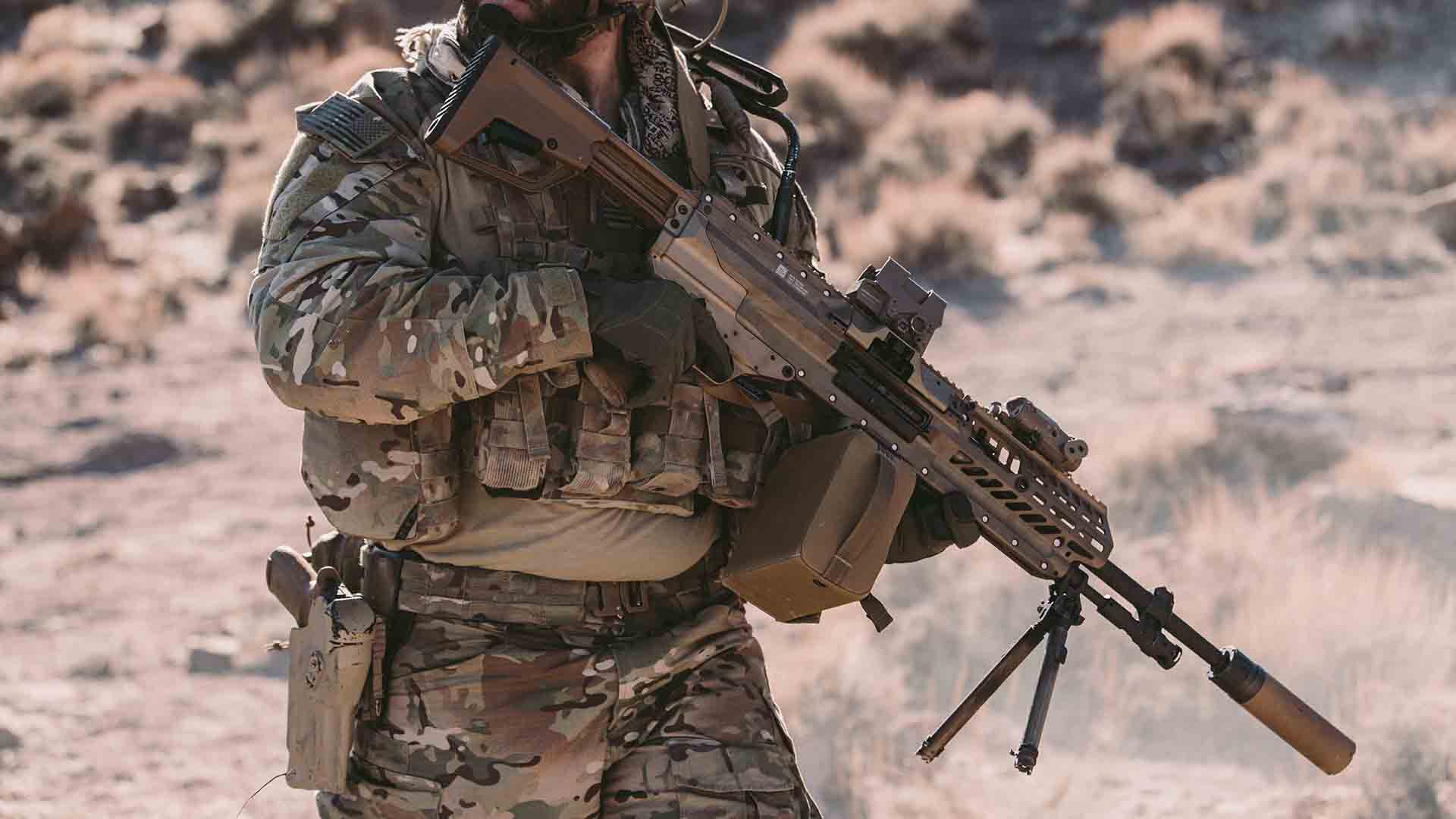

The wait is over. The Army has selected Sig Sauer to build the Next Generation Squad Weapon’s rifle and machine-gun variants that are intended to replace the M4 and M249 Squad Automatic Weapon.
Sig Sauer was awarded a $20.4 million contract to build the XM5 Rifle and the XM250 Automatic Rifle as well as the 6.8 mm ammunition that they chamber, Army officials announced on Tuesday.
“Both weapons provide significant capability improvements in accuracy, range and overall lethality. They are lightweight, fire more lethal ammunition, mitigate recoil, provide improved barrel performance, and include integrated muzzle sound and flash reduction,” an Army news release says. “Both weapons fire common 6.8-millimeter ammunition utilizing government-provided projectiles and vendor-designed cartridges. The new ammunition includes multiple types of tactical and training rounds that increase accuracy and are more lethal against emerging threats than both the 5.56mm and 7.62mm ammunition.”

The XM5 Rifle weighs about 8.3 pounds — slightly heavier than an M4, which typically weighs about 7.3 pounds. Sig Sauer’s design for the machine gun variant weighs 12 pounds, and that is lighter than both the M249 and M240 machine guns, which weigh 18 pounds and 28 pounds respectively.
Want to write for Task & Purpose? Click here. Or check out the latest stories on our homepage.
The Sig Sauer design chambers a 6.8 x 51 mm round with a maximum chamber pressure of 80,000 pounds per square inch that extends the weapon’s range without the need for a longer barrel or heavier ammunition. That is a much higher pressure than the 5.56 x 45 mm NATO round chambered by M4 carbines and M249 machine guns, which has a maximum chamber pressure of 62,000 pounds per square inch.

Ian McCollum, a gun expert and host of the “Forgotten Weapons” YouTube channel, told Task & Purpose during SHOT Show 2022 that he didn’t think an infantry rifle could have a long service life if it fired such a high-pressure round.
But Sig Sauer President and CEO Ron Cohen told Task & Purpose in January that his company’s design for the Next Generation Squad Weapon could fire up to 12,000 rounds before needing to change barrels, whereas soldiers typically need to replace the barrels on their M4 carbines after firing 6,000 rounds.
Sig Sauer’s submission for both Next Generation Squad Weapon variants and ammunition was selected over a design offered by LoneStar Future Weapons, owned by True Velocity. The LoneStar design for the weapon featured a “bullpup” configuration, in which the magazine is behind the trigger control assembly, and a reciprocating barrel that moves backwards with each shot to absorb recoil.
The most innovative feature of LoneStar’s design was the composite 6.8 mm ammunition made by True Velocity, which is an average of 30% lighter than brass cartridges.

Soldiers have been waiting for five years to get their hands on the Next Generation Squad Weapon.
In May 2017, Gen. Mark Milley, then Army Chief of Staff, warned Congress that newer types of body armor sold for just $250 by “adversarial states” could stop the 5.56 mm round chambered by the U.S. military’s M4 carbines, M16 rifles, and M-249 machine guns.
After looking for a commercially available weapon to serve as an interim rifle, the Army decided in October 2017 to find a replacement for the M4 and M249.
The Next Generation Squad Weapon rifle and machine gun variants are expected to be fielded to soldiers in the “Close Combat Force,” a term that encompasses several frontline military occupational specialties including infantry, cavalry scouts, combat medics, forward observers, combat engineers, and special operations forces.
The Army expects to have a better idea this summer about how long it will take to field the Next Generation Squad Weapon to soldiers.
What’s new on Task & Purpose
- Soldiers will be able to get the Army’s Next Generation Squad Weapon – as soon as there is enough ammo
- This Army ‘Best Ranger’ competitor showed soldier ingenuity that had instructors face-palming
- How an airman fought off a grizzly bear in Alaska
- Tom Hanks to continue his absolute domination of World War II entertainment
- A soldier was left to die alone in his barracks for 5 days. His family wants to know why
Want to write for Task & Purpose? Click here. Or check out the latest stories on our homepage.
